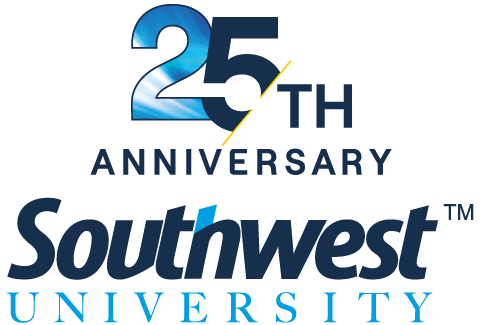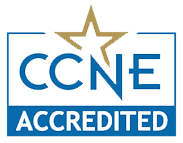Masters of Science in Nursing
24-Month Program
Full distance
The Master of Science in Nursing program provides core courses in nursing theory, research, evidence-based practice, leadership, professional role development, health policy, and information systems. Graduates will be prepared to lead and promote culturally competent healthcare globally, designing interprofessional teams and integrating care services. They will translate evidence base practice into ethical and innovative practices, utilizing their clinical knowledge to restore wellness and improve team functions. Graduates will articulate issues and trends affecting nursing and healthcare delivery, critically appraise and utilize various sources of knowledge for quality outcomes, and develop collaborative relationships to improve health outcomes in diverse settings.
Quick Facts
- Healthcare data analytics for data-driven decisions
- Innovative leadership in healthcare
- Human resource management
- Community and population healthcare coordination
- Advanced health assessment
- Informatics for nursing care
- Policy and advocacy for quality in healthcare
Course Preview
1 - Advancing Professional Roles and Values
Equips students for online success, fostering academic and professional growth, emphasizing evidence-based practices, honing writing skills, ensuring ethical behavior, and guiding them through MSN Capstone requirements.
2 - Leadership and Management for Diverse Healthcare Systems
Develop essential skills to lead diverse healthcare teams, apply decision-making models, analyze organizational issues impacting healthcare, and advance equity in organizational and community healthcare
3 - Research Methodology
Master the steps and policies for effective organizational research, evaluate scientific methods, identify and overcome research pitfalls, and uphold ethical research processes.
4 - Data Management Analytics in Healthcare
Identify organizational points for data collection, explore data-collecting methods, utilize data for decision-making, analyze data to guide services and predict needs, and inform equipment and treatment needs using patient and client data.
5 - Collaborative Leadership
Explore characteristics of advanced nurses, applies evidence-based collaboration strategies, advocates for policy reform, analyzes data for policy recommendations, develops leadership skills, and creates healthy work environments.
6 - Advanced Organizational Human Resources Management
Explore human resource management, diversity’s role, HR regulations, and leadership in organizational change and employee retention.
7 - Challenges in Community Health Care
Understand factors affecting overall health, implement technology for preventative care, use evidence-based practice strategies, assess community emergency preparedness, and address access to care issues.
8 - Population Healthcare Coordination
Recognize the impact of values on vulnerable populations, prevent unsafe practices, understand population and environmental health, and recognize the healthcare administrator’s role in population-based care initiatives.
9 - Advanced Health Assessment I
Develop a comprehensive understanding of patient contexts, advanced assessment skills, diagnostic reasoning, prioritization, ethical considerations, interprofessional communication, and continuous improvement.
10 - Advanced Health Assessment II
Aquire advanced techniques, clinical reasoning, diagnostic tools, communication skills, evidence-based practice integration, technology use, and ethical/legal considerations.
11 - Organizational Finance in Healthcare
Examine healthcare financial managers’ objectives, identify financing and delivery methods, compute cost-shifting and cost-cutting measures, evaluate costs, interpret financial ratios, and analyze budgeting stages in corporate planning.
12 - Quality Improvement in Healthcare
Examine healthcare financial objectives, financing methods, cost management, cost analysis, financial ratios, and corporate budgeting stages.
13 - Informatics for Transforming Nursing Care
Integrate nursing science with informatics, applies informatics concepts, aligns theory with practical applications, explores the nurse informatics role, and prepares students for informatics in nursing practice.
14 - Innovative Solutions in Healthcare Leadership
Examine interdisciplinary collaboration, understand organizational structures, promote cultural competence, and apply quality improvement processes in healthcare leadership.
15 - Policy and advocacy for quality in healthcare
Apply quality improvement strategies, utilizes disruptive leadership, analyzes health policies’ impact, evaluates legal and regulatory processes, addresses professional nursing issues, and develops action plans for healthcare improvement.
16 - Nursing Capstone I
Integrate knowledge from previous courses into a healthcare improvement project, implements training and communication plans, demonstrates leadership skills, applies theory to enhance practice, evaluates project success, and provides an opportunity for CPHQ certification.
Associate of Applied Science in Nursing
24-Month Program
(104 Weeks)
The Associate of Applied Science Program at Southwest University at El Paso is a 16-term program of study that prepares the student to provide patient centered care, to act as a safety advocate for the patient, to become a member of the nursing profession and healthcare team in various healthcare settings and builds confidence in the student as they embark on the journey of becoming a professional nurse.
The curriculum at Southwest University at El Paso School of Nursing is designed for the modern nurse encompassing ideologies to include evidence-based practice outcomes, patient care technologies, coordination of care with the interdisciplinary care team, promotion of quality of life, delegation, management and leadership skills that reflect the values and ethics of the nursing profession. Nursing skills competencies are divided into two courses and are taught before clinical or simulation entry so students are able to take advantage of all opportunities presented during clinical learning experiences. The design of the program focuses on the roles of a nurse as expressed by the Texas Board of Nursing: Provider of Patient-Centered Care, Member of Health Care Team, Member of the Profession, and Patient Safety Advocate.
The major concepts of health promotion, disease prevention, and disease management are incorporated into each course. The nurse utilizes a systematic framework for assessment, planning, and evaluation of nursing care. The program prepares the graduate for the NCLEX-RN examination, which is a requirement for licensure and is administered by the National Council for the State Boards of Nursing (NCSBN).
At Southwest University of El Paso College of Nursing students will learn the following beneficial career skills:
- Utilizing clinical reasoning and knowledge base to perform the highest level of patient care
- How to create evidence-based practice outcomes
- Utilization of skills to support safe nursing practice and enhanced communication
- How to adhere to standards of practice and regulatory frameworks of the professional nurse
- Direct admission to RN to BSN bridge program
- ….And so much MORE!!
The Baccalaureate degree program in nursing at Southwest University is accredited by
the Commission on Collegiate Nursing Education, 655 K Street NW, Suite 750, Washington, DC 20001, 202-887-6791.
Bachelors of Science in Nursing (RN to BSN Bridge)
12-Month Program
(48 Weeks)
Deciding to go back to school for your BSN degree can feel like a challenge due to the demands of life. We are looking for Registered Nurses who are seeking growth in their career while improving patient outcomes, enhancing standards within the nursing profession and decreasing incivility as well as the ability to participate at different levels of leadership within their nursing practice and as part of the interdisciplinary healthcare team.
This program is designed for working Registered Nurses who need an RN to BSN degree program that fits their busy schedule. The program emphasis includes improving quality of care and patient safety, leadership and management, managing health information and technology, coordinating patient care and public health/preventive nursing. All theory courses are offered online followed by a practicum experience where learners complete hours at a clinical site of their choice in the local community. The program prepares the nursing professional to give a high-quality of care to patients, but also provide a high-quality customer service.
Our community of nurses is already improving the health of their communities and producing positive outcomes accompanied by career growth and salary increases. You can join this skilled workforce of nurses who are influencing patient outcomes around the country. Our online, CCNE-accredited RN to BSN program is ready to assist you in taking your nursing career to the next level.
At Southwest University of El Paso College of Nursing RN to BSN students will learn the following beneficial career skills:
- Leadership skills to achieve the highest quality care that is patient centered and fosters and interdisciplinary approach
- Care Coordination that assists the nurse in prioritizing quality, safety and efficiency in complex healthcare environments to improve patient outcomes
- Research development to guide evidence-based processes informed by research findings that enhance access to quality healthcare services.
- Transfer credits accepted
- Direct Care Experiential Learning
The Baccalaureate degree program in nursing at Southwest University is accredited by
the Commission on Collegiate Nursing Education, 655 K Street NW, Suite 750, Washington, DC 20001, 202-887-6791.



